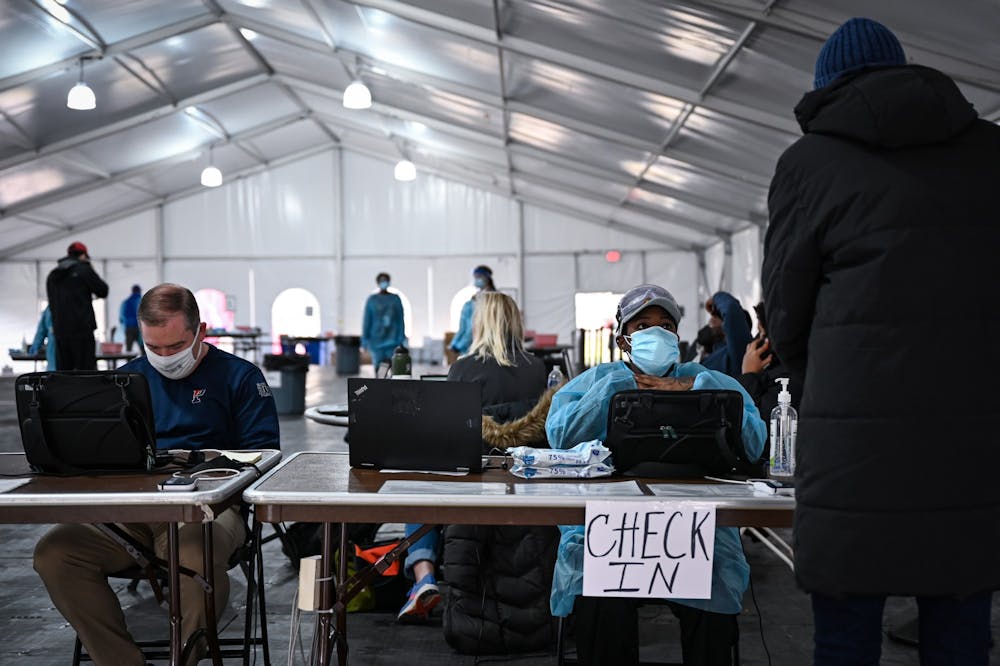
Despite COVID-19 cases reaching an all-time high, Penn made the decision to bring students back to campus at full capacity. But with the promise of social distancing measures and a strict twice-a-week testing schedule, many undergraduate students felt confident that their spring semester could be both safe and successful.
That is, until Penn canceled first-year and sophomore testing last Monday.
Due to the three-day snowfall that was said to be Philadelphia's worst in five years, Penn suspended campus operations Feb. 1 and Feb. 2, including COVID-19 testing. However, dining halls were still open, so many students expressed confusion as to why it was necessary for indoor testing locations to close. In fact, testing was operating for symptomatic and close-contact students, but everyone else was required to wait until their next scheduled test day. For first years and sophomores, who were assigned test days of Monday and Thursday, this meant waiting a full week (Jan. 28 to Feb. 4) before they could receive a test.
Following these canceled tests, cases rose significantly, with Penn even releasing a message about “worrisome trends in the positivity rate” and threatening to enter Campus Alert Level Three. This sudden increase in positive tests could have easily been avoided if Penn had prioritized testing, instead of letting students believe they were negative and expose themselves throughout the week. Because infected individuals can be asymptomatic and unaware that they are sick, testing is a crucial factor in containing the spread of the virus.
As first-year students have been notoriously trying to make friends and go out, they should be the most strictly monitored in terms of testing. Many students — including myself — who tried obtaining tests on their non-scheduled day were turned away, consequently leading them to take matters into their own hands and acquire tests off-campus at local urgent care centers. Not only does this prove Penn’s system to be inefficient, it also shows that students are concerned, and these concerns are not being addressed.
Even worse, Penn did not require students to get tested prior to arrival on campus. Back in August, self-administered Genetworx saliva tests were meant to be sent to students’ home addresses for mail-away testing. Of course, this did not happen due to the cancellation of the fall semester, but once campus reopened, students assumed this plan would resume. Instead, testing was not required beforehand, and students came to Penn already infected. Gateway testing was scheduled at students’ convenience, allowing them to expose themselves to their roommates and pod members before obtaining a test.
Of course, students breaking social distancing rules are responsible for the spread of COVID-19, but it is also the school’s job to enforce rules, provide resources, and mitigate the effects of the pandemic. Before immediately blaming students, Penn must provide adequate testing and do its part in limiting community spread.
EMILY CHANG is a College first-year student studying sociology from Holmdel, N.J. Her email address is changem@sas.upenn.edu.
The Daily Pennsylvanian is an independent, student-run newspaper. Please consider making a donation to support the coverage that shapes the University. Your generosity ensures a future of strong journalism at Penn.
Donate







